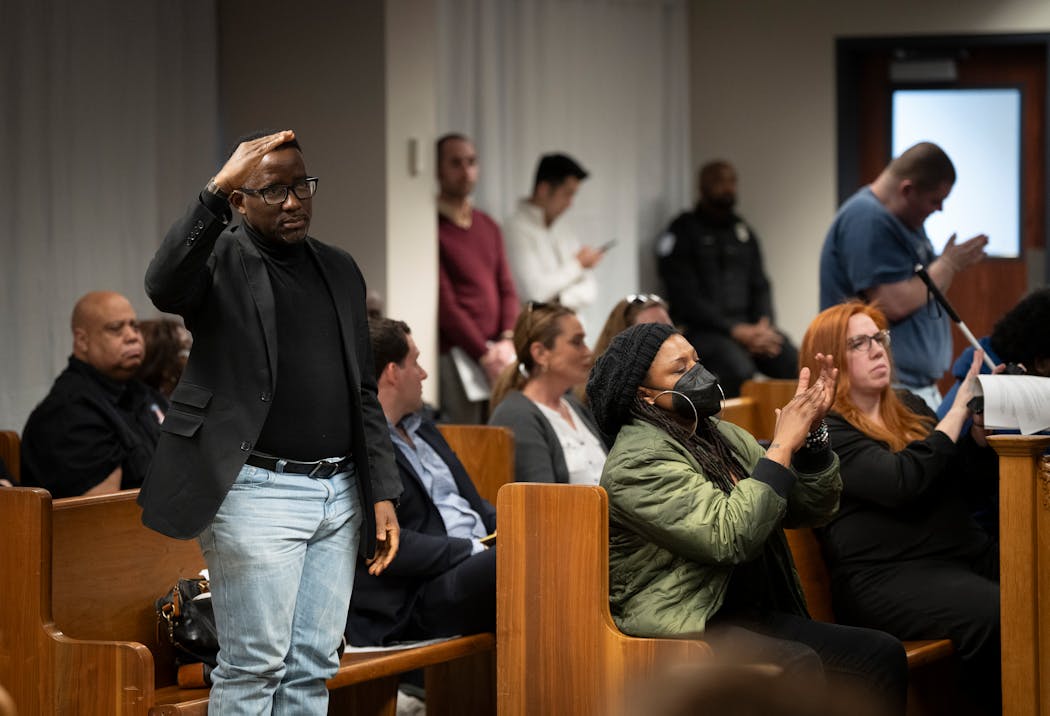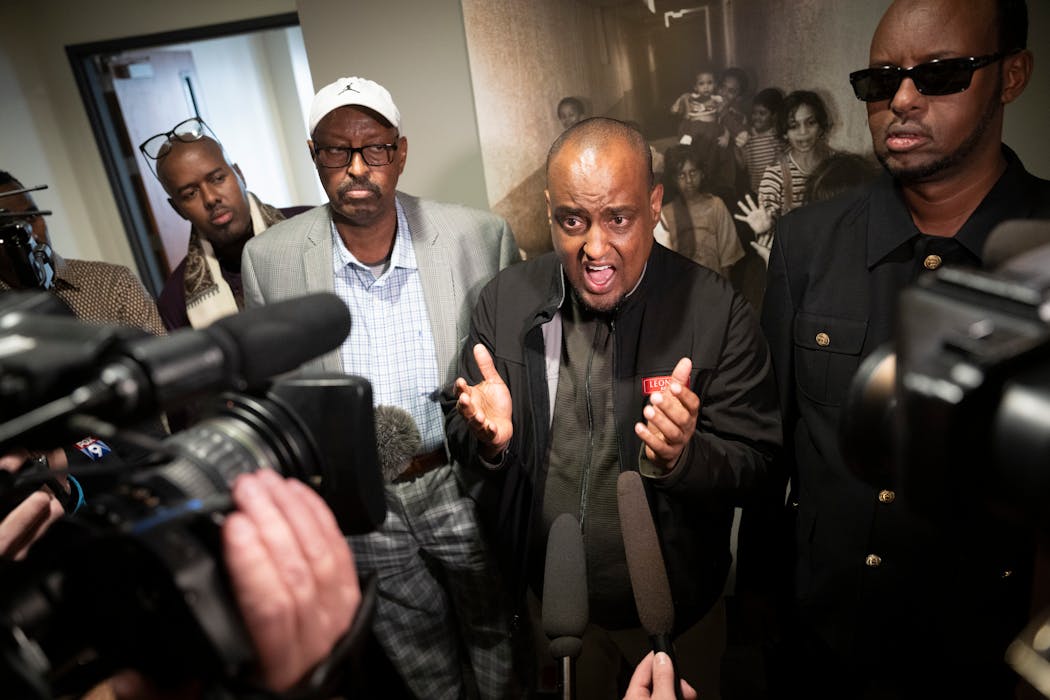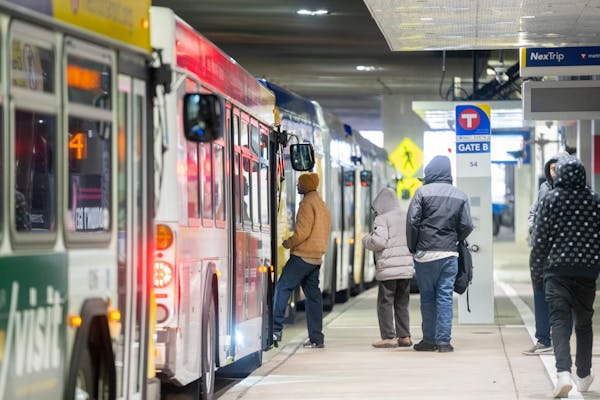Minneapolis will delay the start date of a new policy that sets the pay for drivers of Uber, Lyft and other rideshare services.
The Minneapolis City Council voted unanimously Thursday to push the ordinance's effective date back two months, from May 1 to July 1. Council members praised the move, saying it would allow more time for new rideshare companies to start up and potentially fill gaps left by Uber and Lyft, which have pledged to leave Minneapolis once the ordinance takes effect.
"I am confident that this small delay in implementation will lead to better outcomes for drivers and riders statewide and also lay a stronger foundation for a Minnesota rideshare industry that is more equitable instead of extremely exploitive, which it is now," said Council Member Robin Wonsley, who co-sponsored the original rideshare pay plan.
Uber and Lyft have both said they'll delay their departure — Uber has said it will leave the Twin Cities, and Lyft has pledged to stop operating in Minneapolis — to July 1.
In a statement, Lyft spokesperson CJ Macklin reiterated that the new pay rules will make it too expensive to operate in Minneapolis, and that "drivers will ultimately earn less."
"This is unsustainable for our customers and would force us to shut down operations in Minneapolis when the ordinance does inevitably take effect," Macklin said.
Mayor Jacob Frey vetoed the original rideshare ordinance and has urged the council to modify its plan to prevent Uber and Lyft from leaving and causing major disruptions for businesses, seniors, people with disabilities and other groups. He issued a statement shortly after the vote suggesting continued frustration with the council.
"A delay is not a fix," he said. "While Council continues to make a mess of this, I'll be working with policymakers and partners from across the disability, hospitality, and business communities to find a path forward for drivers and riders."
Meanwhile, the council was divided on two other proposals related to the rideshare ordinance. Attempts to rescind the ordinance altogether and set a lower pay rate both failed.
Council Members Andrea Jenkins and Emily Koski proposed lowering drivers' compensation to $1.21 per mile and 51 cents per minute – a compromise between the city's approved new rate and those outlined in a state study. Uber and Lyft have said they would stay in Minneapolis if the city approved rates at the level recommended by the state study.
But a majority of council members were not on board with that plan; some felt the compromise rates were still too high, while others said they wanted to use the two months to craft a more refined rate proposal.
Council Member Linea Palmisano, who along with Council Members Michael Rainville and LaTrisha Vetaw have long been critical of the driver pay policy, offered a motion to scrap the ordinance and start anew. She said it was clear the ordinance would have a negative impact on a variety of groups, noting that some Uber and Lyft drivers have already lost their vehicles and college tuition assistance, and calling the policy "so tainted with negative outcry that I find it unsalvageable."
"This ordinance was awfully misguided," she said. "A sign of good faith here is to start over."
The proposal failed on a 3-10 vote, with Palmisano, Rainville and Vetaw voting in favor.
Council President Elliott Payne said the council should tweak the plan it approved, rather than dropping it, with the goal of ensuring better conditions for drivers. He noted that it's difficult to set a pay rate that "captures the totality of the dynamics of this marketplace."
"Any given ride or any given driver, their expenses are going to be different than another driver," he said. We will try to target a policy that eliminates the most egregious outcome: drivers that are getting exploited to the maximum."
What's next
Hours after the council votes, scores of Twin Cities ride share drivers, labor leaders and officials from a handful of new ride share company hopefuls rallied to discuss the next steps in partnering with state legislators to ensure fair wages for 10,000 drivers.
Council Member Jamal Osman said the two-month delay will give more time so new rideshare companies wishing to enter this market "can come in, get set up and running."
Four companies — Moov, MyWeels, Wridz and Joiryde — have so far applied for rideshare licenses in Minneapolis. Six others, including California-based Hich MN, which was present Thursday, expressed interest in starting rideshare businesses here but have yet to submit a license application.
A seventh entity, a cooperative that would be owned by local drivers, is working in the wings to fill the void left by Uber and Lyft, should they actually leave. Co-op members are working with MULDA but have yet to apply for a license.
On Thursday, two new ride app firms came forward as well.
Niko Lemieux of St. Paul said he and a partner expect to file for a license by the end of the month to bring the Teleport Ride Share app to Minneapolis. The app already operates in College Station, Texas, and was recently licensed in Florida, Indiana and Arizona.
At the invitation of University of Minnesota professors, Shan Ms said he and two partners flew in from Bangalore, India, Thursday to tell the council and drivers that they planned to bring India-based Bridge app, by JusPay, to Minnesota in the coming weeks.
JusPay and its partners have 1,300 employees globally and previously raised $100 million to support ride share operations in different countries, Ms said. "We are super committed to making the app work" in Minneapolis, he said.

Want to share info with the Star Tribune? How to do it securely

'Safe recovery sites' would offer syringes, naloxone and more to people using drugs. The plan could be in peril.
New Minnesota GOP leaders seek peace with party's anti-establishment wing

Who is Republican Lisa Demuth, Minnesota's first House speaker of color?




